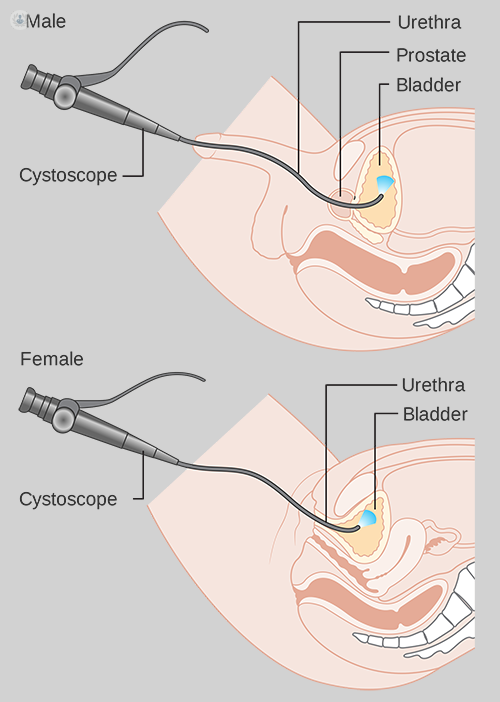


What is a cystoscopy?
A cystoscopy is a procedure to look inside the bladder by inserting a thin tube with a camera called a cystoscope through the urethra. Instruments can be passed down the cystoscope to perform minimally invasive surgery during the cystoscopy if necessary.
What does a cystoscopy involve?
There are two types of cystoscopy – rigid and flexible.
In a flexible cystoscopy:
In a rigid cystoscopy:
Why is a cystoscopy done?
Cystoscopies are performed to diagnose and, in some cases, treat problems in the bladder and/or urethra. Symptoms that may lead a doctor to recommend a cystoscopy include:
Cystoscopies can also be used to take biopsies, for example, to test for bladder cancer.
They can be used to perform the following treatments:
Preparation for a cystoscopy
You should follow your doctor’s instructions. You may be told not to eat or drink anything for a period before the procedure. You should also inform your doctor of any medication you are taking and any allergies you have.
What does it feel like during the test?
Cystoscopies may be uncomfortable, but significant pain is unusual. If general anaesthesia is used, the patient should not feel anything during the procedure. They may experience some discomfort while urinating after the procedure, but this usually disappears after a few days.
Cystoscopy recovery
Cystoscopies are usually day case procedures, meaning that the patient can return home the same day. Normal activities, including work, exercise, and even sex can resume as soon as the patient feels able to (usually within a day or two). It is normal to feel some discomfort passing urine or even having a little blood in the urine for a day or two.
If there is a lot of blood, if the symptoms persist, and/or if the patient develops a high fever, they should contact their doctor.
